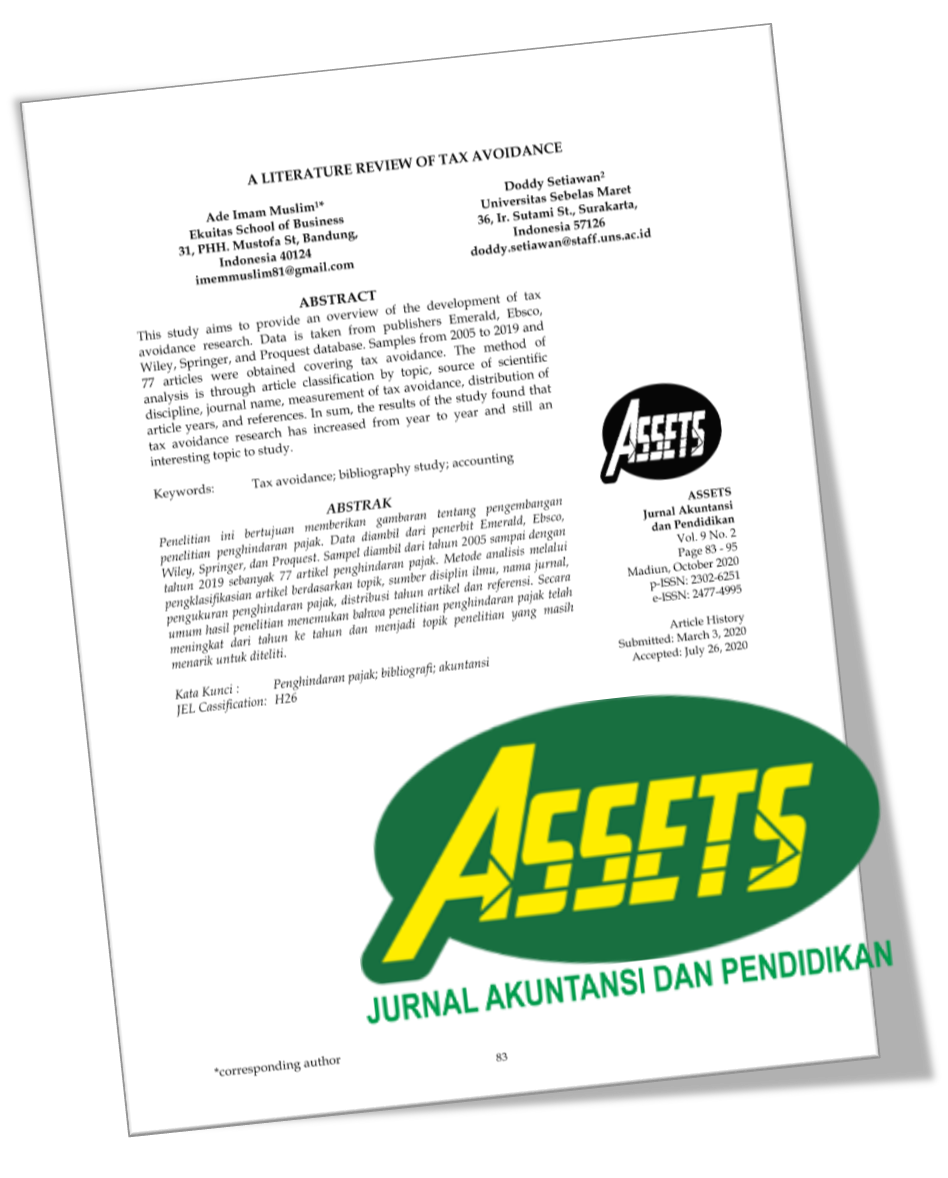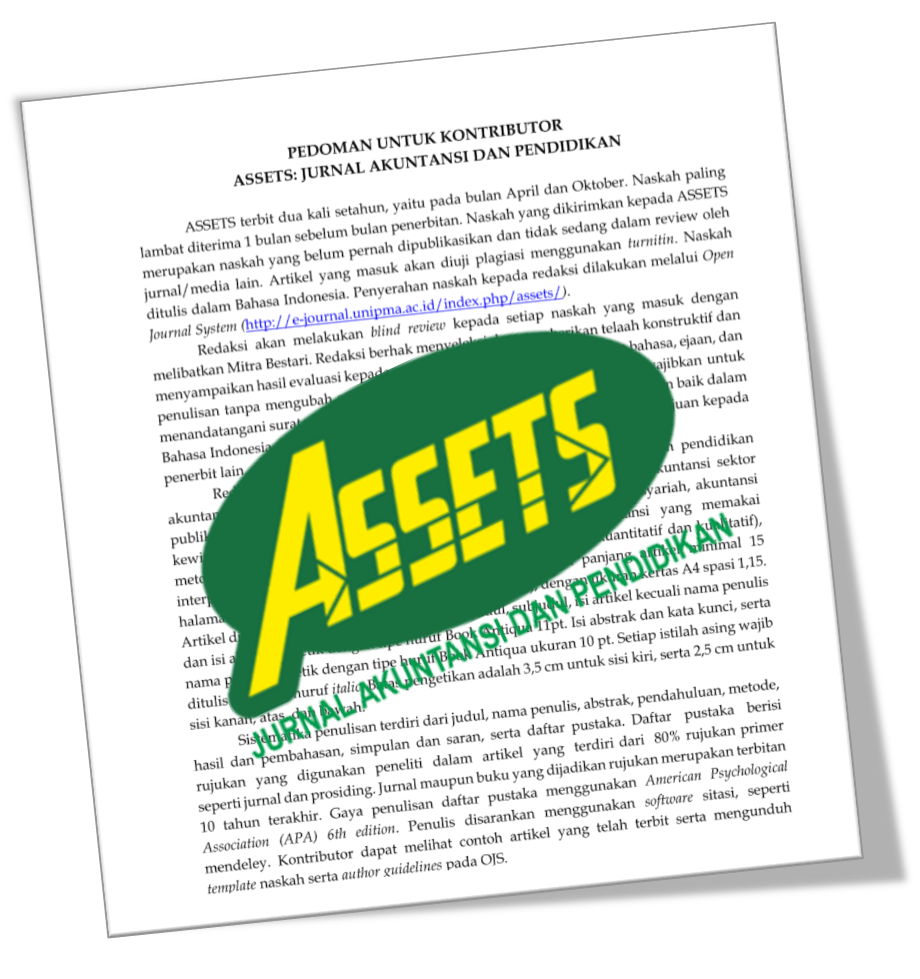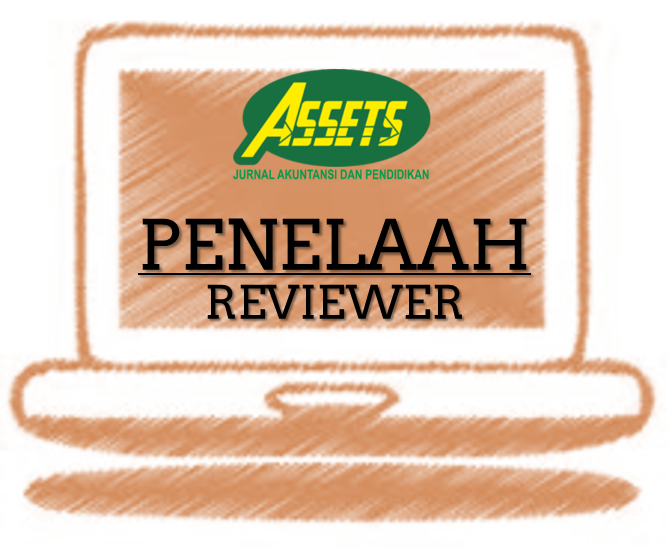Kesesuaian Sistem Pelaporan Keuangan Akrual dalam Pengambilan Keputusan Internal di Pemerintah Daerah
DOI:
https://doi.org/10.25273/jap.v8i1.4087Keywords:
Pelaporan keuangan pemerintah daerah, pengambilan keputusan, kontrol internal, relevansi informasi laporan keuanganAbstract
Downloads
References
Andriani, Y., Kober, R., dan Ng, J. 2010. Decision usefulness of cash and accrual information: Public sector managers’ perceptions. Australian Accounting Review, 20 (2): 144-153.
Anessi-Pessina, E., dan Steccolini, I. 2007. Effects of budgetary and accruals accounting coexistence: Evidence from Italian local governments. Financial Accountability & Management, 23(2): 113-131.
Aryani, M., K., dan Kiswanto. 2017. The effect of accrual-gas on the financial reporting reliability with hr capacity as mediating variables. Jurnal Dinamika Akuntansi, 9 (2): 110-122.
Askim, J. 2008. Determinants of performance information utilization in political decision making. In Performance information in the public sector (125-139). Palgrave Macmillan, London.
In W.van Doren, dan St. van de Walle (Eds.) 2014, Performance information in the public sektor: Howis it used? New York: Palgrave Macmillan.
Ball, I. 1994. Reinventing government: lessons learned from the New Zealand treasury. The Government Accountants Journal, 43: 19–25.
Bergmann, A. 2011. The influence of the nature of government accounting and reporting in decision-making: Evidence from Switzerland. Public Money & Management, 32(1): 15-20.
Boxall, P. 1998. The revolution in government accounting. Australian CPA (April), 18–20.
Brorström, B. 1998. Accrual accounting, politics and politicians. Financial Accountability & Management, 14(4): 319-333.
Brusca, I., dan Condor, V. 2002. Towards the harmonization of local accounting systems in the international context. FinancialAccountability & Management, 18(2): 129-162.
Brusca, I. 1997. The usefulness of financial reporting in Spanish local governments. Financial Accountability & Management, 13(1): 17-34.
Caperchione, E. 2006, The New Public Management: A Perspective for FinanceManagers, Federation des Experts Comptables Europeans, Public Sector Committee, Brussels, Belgia.
Carlin, T. 2000. Measurement Challenges and Consequences in the Public Sector, Australian Accounting Review, 11(2): 63–72.
Carlin, T. 2005. Debating the impact of accrual accounting and reporting in the public sector. Financial Accountability & Management, 21(3): 325-244.
Churchill, M. 1992. Accrual Accounting in the Public Sector, Australian Accountant (June), 39–42.
Cohen, S. 2009. Cash versus accrual accounting measures in Greek municipalities: Proxies or not for decision making? SSRN.http://ssrn.com/abstract=1031089.
Djamhuri, A. dan Mahmudi. 2006. New Public Mananagement, accounting reform and institutional perspective of public sector accounting in Indonesia. Jurnal Bisnis danAkuntansi, 3: 301-321.
Evans, M. 1995. A Change for the Better? Accountancy, 115: 92–94.
FEE. 2007. Accrual accounting in the public sector. Brussels: Federation of European Accountants.
Ghulam, Rumy. 2013. Mencari batu pijakan bagi akrualisasi sektor publik di Indonesia (Studi atas penerapan akuntansi berbasis akrual di Nepal, Hongkong, dan Selandia Baru). Jogjakarta: MM UGM
Grossi, G., dan Reichard, C. 2009. The limited use of financial data for governmental decision-making-An exploratory study with reference to Germany and Italy. In 12th biennial comparative international governmental accounting research (CIGAR) conference-New challenges for public sector accounting Mei, Modena.
Guthrie, J. 1998. Application of accrual accounting in the Australian public sector-rhetoric or reality? Financial Accountability & Management, 14(1): 1-19.
Guthrie, J., Olson, S., dan Humphrey, C. 1999. Debating developments in new public financial management: The limits of global theorizing and some new ways forward. Financial Accountability& Management, 15(3/4), 209-228.
IFAC-IPSASB (2011). Transition to the accrual basis of accounting: Guidance for public sector entities, New York: International Federation of Accountants.
Karno, P. 2017. Kegunaan informasi akuntansi dalam pengambilan keputusan internal oleh Unit Akuntansi Kuasa Pengguna Anggaran (UAKPA). Indonesian Treasury Review, 2(4): 73-91.
Kementerian Keuangan Republik Indonesia. 2014. Modul Penerapan Akuntansi Berbasis akrual. http://keuda.kemendagri.go.id/pages/view/20-modul-penerapan-akuntansi-berbasis-akrual diakses tanggal 12 Januari 2019
Kober, R., Lee, J., dan Ng, J. 2010. Mind your accruals: Perceived usefulness of financial information in the Australian public sector under different accounting systems. Financial Accountability & Management, 26(3): 267-298
Lapsley, I., Mussari, R., dan Paulsson, G. 2009. On the adoption of accrual accounting in the public sector: A self-evident and problematic reform. European Accounting Review, 18(4): 719-723.
Mack, J. 2004. An investigation of the information requirements of users of Australian public sector financial reports, Queensland University of Technology, Brisbane.
Mack, J., dan Ryan, C. 2006. Reflections on the theoretical underpinnings of the general purpouse financial reports of Australian government departments. Accounting, Auditing & Accountability Journal, 19(4): 592-612.
Mahmudi. 2010. Manajemen Kinerja sektor Publik (edisi 2). Yogyakarta: Unit Penerbit dan Percetakan Sekolah Tinggi Ilmu Manajemen YKPN.
Nogueira S.P, dan Jorge, S.M, 2012. Adequacy of the local government financial reporting model in the context of internal decision-making: an exploratory study in the municipality of Braganca, TEKHNE Review of Applied Management Studies, 10: 74-86.
Paulsson, G. 2006. Accrual accounting in the public sector: Experience from the central government in Sweden. Financial Accountability & Management, 22(1): 47-62.
Peraturan Menteri Dalam Negeri Nomor 64 Tahun 2013 tentang Penerapan Standar Akuntansi Pemerintahan Berbasis Akrual Pada Pemerintah Daerah.
Peraturan Pemerintah Nomor 17 Tahun 2010 tentang Standar Akuntansi Pemerintahan
Peraturan Pemerintah Nomor 24 Tahun 2005 tentang Standar Akuntansi Pemerintahan
Robinson, M., 1998. Capital charges and capital expenditure decisions in core government, Journal of Public Budgeting, Accounting & Financial Management, 10(3): 354–374.
Roob, A. Newberry, S. 2007. Globalization: govermental accounting and international financial reporting standards. Sosio-Economic Review, 5: 725-754.
Ryan, C., Stanley, T., dan Nelson, M. 2002. Accountability disclosures by Queensland local government councils: 1997-1999. Financial Accountability & Management, 18(3): 261-289.
Simanjuntak, Binsar H., 2005. Menyongsong era baru akuntansi pemerintahan di Indonesia. Jurnal Akuntansi Pemerintahan, 1(1): 12-21.
Slamet, D., 1998. Looking to best practice: taking a broad view, Australian CPA (September): 60–62.
Steccolini, I., 2004. Is the annual report an accountability medium? An empirical investigation into Italian local governments. Financial Accountability & Management, 20(3): 327-350.
Sugiyono. 2014. Metode Penelitian Pendidikan Pendekatan Kuantitatif, Kualitatif Dan R&D. Bandung: Alfabeta.
Sulistyanto, Sri H. 2008. Manajemen Laba: Teori dan Model Empiris. Grasindo: Jakarta.
Susanto, D., dan Djuminah. 2015. the usefulness of local government financial statements for regional development planning process (an empirical study against the head of the district development planning agencies in Java and Madura). Procedia - Social and Behavioral Sciences, 211: 75 – 80.
Torres, L. 2004. Accounting and accountability: Recent developments in government financial information systems. Public Administration & Development, 24(5): 447-456.
Undang-Undang Nomor 1 Tahun 2004 tentang Perbendaharaan Negara.
Webster, A., 1998. Improving performance: accrual accounting points the way ahead, Australian CPA (April): 24–26.
Windels, P., dan Christiaens, J., 2008. The adoption of accrual accounting in Flemish public centres for social welfare: Examining the importance of agents of change. In S. Jorge (Ed.), Implementing Reforms in Public Sector Accounting: 229-251.
Wynne, A., 2008. Accrual accounting for the public sector-A fad that has had its day? International Journal of Governmental Financial Management, 117-132.
Yamamoto, K., 2008. What matters in legislators’ information use for financial reporting? The case of Japan. In S. Jorge (Ed.), Implementing Reforms in Public Sector Accounting: 377-391.
Downloads
Additional Files
Published
Issue
Section
License
Perjanjian Lisensi dan Hak Cipta
Saat mengirimkan naskah ke jurnal, penulis menyatakan bahwa:
- Mereka diberi wewenang oleh rekan penulisnya untuk masuk ke dalam perjanjian ini.
- Karya yang dimaksud belum pernah diterbitkan secara resmi sebelumnya, kecuali dalam bentuk abstrak atau sebagai bagian dari kuliah, resensi, tesis, atau overlay jurnal yang diterbitkan.
- Karya yang dimaksud tidak sedang dipertimbangkan untuk diterbitkan di tempat lain,
- Publikasi karya yang dimaksud telah disetujui oleh semua penulis dan oleh otoritas yang bertanggung jawab - secara tahu sama tahu atau eksplisit - dari lembaga tempat pekerjaan itu dilakukan.
- Mereka mengamankan hak untuk mereproduksi materi apa pun yang telah diterbitkan atau dilindungi hak cipta di tempat lain.
- Mereka menyetujui lisensi dan perjanjian hak cipta berikut.
Hak Cipta
Penulis yang menerbitkan dengan ASSETS: Jurnal Akuntansi dan Pendidikan menyetujui persyaratan berikut:
- Penulis mempertahankan hak cipta dan memberikan jurnal hak publikasi pertama dengan karya yang secara bersamaan dilisensikan di bawah Lisensi Atribusi Creative Commons (CC BY-SA 4.0) yang memungkinkan orang lain untuk berbagi karya dengan pengakuan kepenulisan karya dan publikasi awal di jurnal ini.
- Penulis dapat masuk ke dalam pengaturan kontrak tambahan yang terpisah untuk distribusi non-eksklusif dari versi jurnal yang diterbitkan dari karya tersebut (misalnya, mempostingnya ke repositori institusional atau menerbitkannya dalam sebuah buku), dengan pengakuan publikasi awalnya di jurnal ini.
- Penulis diizinkan dan didorong untuk memposting karya mereka secara daring (misalnya di repositori institusional atau di situs web mereka) sebelum dan selama proses pengiriman, karena dapat menghasilkan pertukaran yang produktif, serta kutipan lebih awal dan lebih besar dari karya yang diterbitkan.
License and Copyright Agreement
In submitting the manuscript to the journal, the authors certify that:
- Their co-authors authorize them to enter into these arrangements.
- The work described has not been formally published before, except as an abstract or part of a published lecture, review, thesis, or overlay journal.
- That it is not under consideration for publication elsewhere,
- That its publication has been approved by all the author(s) and by the responsible authorities – tacitly or explicitly – of the institutes where the work has been carried out.
- They secure the right to reproduce any material already published or copyrighted elsewhere.
- They agree to the following license and copyright agreement.
Copyright
Authors who publish with ASSETS: Jurnal Akuntansi dan Pendidikan agree to the following terms:
- Authors retain copyright and grant the journal right of first publication with the work simultaneously licensed under a Creative Commons Attribution License (CC BY-SA 4.0) that allows others to share the work with an acknowledgment of the work's authorship and initial publication in this journal.
- Authors can enter into separate, additional contractual arrangements for the non-exclusive distribution of the journal's published version of the work (e.g., post it to an institutional repository or publish it in a book), with an acknowledgment of its initial publication in this journal.
- Authors are permitted and encouraged to post their work online (e.g., in institutional repositories or on their website) before and during submission, as it can lead to productive exchanges and earlier and more extraordinary citations of published work.

ASSETS: Jurnal Akuntansi dan Pendidikan is licensed under a Creative Commons Attribution-ShareAlike 4.0 International License.










